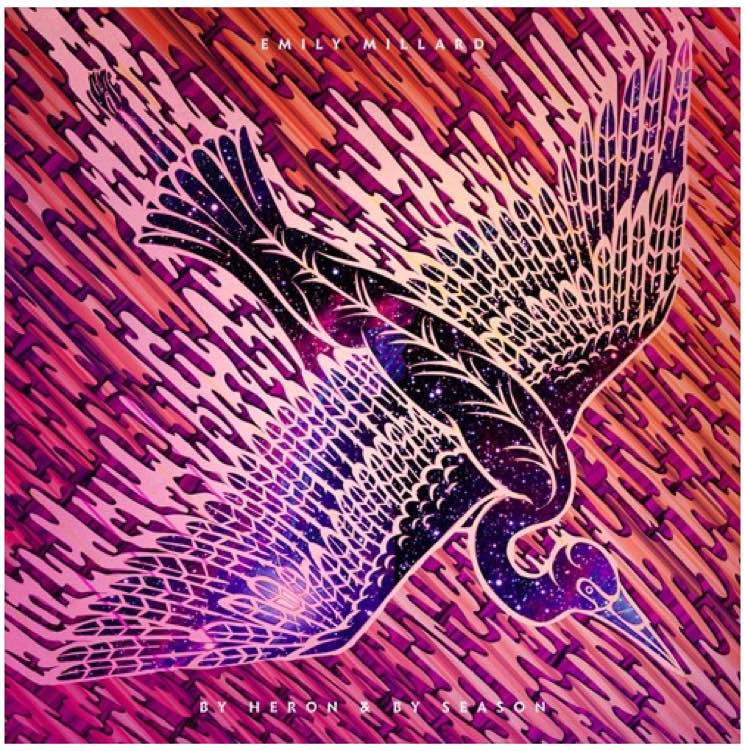Twenty-five seconds into "Flashlight," Emily Millard's voice performs a subtle flourish that piques the ear; a softly swelling synth under her piano playing adds timbral depth; and when the upright bass boldly enters with a countermelody, one can't help but feel that they're in for something special.
Several mentorship experiences contributed to Millard's latest album, By Heron & By Season, among them vocal lessons with Sidsel Endresen, a poetry workshop with West Coast poet Jan Zwicky and a sensitive production ear courtesy of Sandro Perri. Together, and combined with Millard's retreat to a remote island off the coast of B.C. for her writing process, they make for a gorgeous listen. While communing with nature for artistic inspiration is a somewhat cliché origin story, leaving the chaos of city life allowed Millard to dig more deeply into her own psyche and memory.
A particularly visceral example of this inward journey, both musically and lyrically, is "Promise of Spring." Driven by a shaker, quivering violin and moody piano, the first line is appropriately mysterious: "I have been afraid of the truth," she intones. Later, a specifically personal revelation is still shrouded in captivating ambiguity: "I was 26 when the panic seized me."
"Toxic Town" boasts a catchy chorus and lyrics assisted by a 'tone-painting' violin part that rises questioningly after the line, "How can you plant a seed?" and then whinnies after the title phrase. It's a subtle but effective means of complementing the vocal melody and enhancing the lyrical content.
The mysteriously personal poetry and quirky avant-folk arrangements should appeal to fans of Julia Holter or Joanna Newsom, but Millard's complex sonic world is all her own. We are lucky to take part in the trip.
(Independent)Several mentorship experiences contributed to Millard's latest album, By Heron & By Season, among them vocal lessons with Sidsel Endresen, a poetry workshop with West Coast poet Jan Zwicky and a sensitive production ear courtesy of Sandro Perri. Together, and combined with Millard's retreat to a remote island off the coast of B.C. for her writing process, they make for a gorgeous listen. While communing with nature for artistic inspiration is a somewhat cliché origin story, leaving the chaos of city life allowed Millard to dig more deeply into her own psyche and memory.
A particularly visceral example of this inward journey, both musically and lyrically, is "Promise of Spring." Driven by a shaker, quivering violin and moody piano, the first line is appropriately mysterious: "I have been afraid of the truth," she intones. Later, a specifically personal revelation is still shrouded in captivating ambiguity: "I was 26 when the panic seized me."
"Toxic Town" boasts a catchy chorus and lyrics assisted by a 'tone-painting' violin part that rises questioningly after the line, "How can you plant a seed?" and then whinnies after the title phrase. It's a subtle but effective means of complementing the vocal melody and enhancing the lyrical content.
The mysteriously personal poetry and quirky avant-folk arrangements should appeal to fans of Julia Holter or Joanna Newsom, but Millard's complex sonic world is all her own. We are lucky to take part in the trip.
